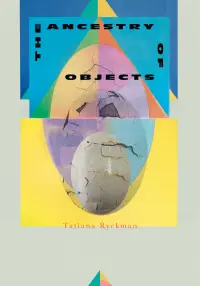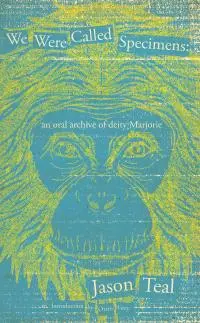Given the state of the world over the last year, it is not much to say that throughout the pandemic and particularly 2020, I struggled to read what wasn’t required of me for work. Nor did I feel it was something I had to examine in great depth. There was a lot to do ensuring the people I love were safe and there was the need to stay focused on paying the bills as some of my work contracted. More than anything I was tired, most especially at night when I like to read, happy to just climb into bed, another day defeated, and closer, I hoped, to a vaccine.
This inability to consume words gnawed at me anyway.
Not because reading might serve as an escape or because I felt I was missing something great, though it would have, and I was, but because reading is the thing I’ve done the longest and has brought me the greatest joy. Well before I started running or writing, became a parent or found anything that I love and sustain, reading was the thing I figured out and stuck with.
What am I then without that joy and passion?
Differently, and in a much more self-serving manner, I pride myself on consuming the books that come to me, not always by choice necessarily, but because someone is hoping I will read the book they send me, find something to say about that book, on paper or on my podcast, and provide exposure to their book that might somehow help them gain any sort of traction among the clutter. And I like being able to step into this role. Being a good literary citizen and someone who can help. There’s a sense of guilt about this when I cannot.
It’s also about ego, influencing a dialogue, playing a role in the moving of culture. I know that.
Still, the books arrive as they always do and I am always excited when they do. Despite the pandemic though, the books kept coming in 2020, and for the most part, if it wasn’t related to work, or from a really good friend, I just didn’t read much of anything.
 I’m reading now though, feeling energized by words again, and if I’m going to immerse myself in reading again, why not dig back through some of what I missed in 2020?
I’m reading now though, feeling energized by words again, and if I’m going to immerse myself in reading again, why not dig back through some of what I missed in 2020?
Don’t I owe that to this lost time and all these wonderful writers?
Which means I have to dig into the pile sitting there by my bed, and as it’s not scientific, this means there will still be books I overlook and I apologize about that.
Yet, here we are, and here I am, and the first book I reach for is The Ancestry of Objects by Tatiana Ryckman (Deep Vellum, September 2020), the story of an affair so visceral and urgent and sad, I felt gripped by its exploration of how the protagonist, the other woman in this case, experiences the loneliness and emptiness of such a relationship. Wondering when the person they’re involved with will come back into their days and life, not wanting them too, but hating themselves for just that.
“…we reach out and he comes, and though we know he will leave, for the moment he is here and his presence is a quiet affirmation that we, too, exist.” (page 103)
The book was heartbreaking to me at every turn. Even when there is pleasure, it feels debased. It is a rumination on being separate from and observing a life that isn’t wanted, and even if examined, not understood.
As I read the book I kept coming back to loneliness and how this was such a profound theme for so many during the pandemic, isolated from loved ones, alone at home, unable to hug, to wander, to feel any kind of real interaction. There was a desire on my part to project a sort of insight onto Ryckman, an idea that she, as she wrote The Ancestry of Objects, knew what was to come.
But then I also thought, loneliness, desperation, this is being alive, and the pandemic only further illuminated this, laid it bare, how much suffering there is, and how little we do to address it.
Loneliness plays a key role in Dreams Of Being by Michael J. Seidlinger (Maudlin House, May 2020) as well. The book itself is an homage to the documentary Jiro Dreams of Sushi, though maybe it’s less homage than a leaping off point. What Seidlinger is doing is asking what it means to be an artist. There is a romantic narrative about artists being alone and tortured, that in a way, there’s no way to create without that.
But that’s a narrative. Is it true?
Not for all, but in delving into this Seidlinger allows the reader to follow the journey of someone who wants to create, who lies their way into the opportunity—the mostly nameless narrator says he is a writer, maybe he is, and a documentary filmmaker, he is not—and finds their way into becoming the very creator they wish to be.
“In Japan, they refer to such disciples as shokunin…The shokunin wants only to work. They desire only the purpose from mastering a craft. Their lives are matched to the purpose and ability to remain productive.” (page 38)
There is a commentary then, as well, about how art comes from mastery and purpose, though also the practice of ritual, a repetition and dedication to the effort at trying to create at all.
For me, writing has been just that, a near daily effort to find a way to translate the words in my head onto paper. To make connections and project some idea that must be released into the world. During the pandemic I learned that this effort to create also offers me a salve, a means to take care of myself. I couldn’t read, but I could always write. I also realized how easy it is to lose track of the time needed to engage in my writing practice, and that can require a mastery over my schedule and priorities. The need for rituals.
There is nothing romantic about that, but it exists as a necessity none the less.
We Were Called Specimens: an oral archive of deity Marjorie by Jason Teal (KERNPUNKT Press, July 2020) is another animal altogether.
Or is it?
Which is to say that this wildly speculative, experimental, oddly engrossing, intersecting collection of micro-fictions is its own thing. A thing that this reviewer, full mea culpa, may not totally grasp, but which feels like an experiment in understanding both how certain personalities come to take hold of our collective imaginations, as well as something uniquely American: the desire to believe in something greater than anyone of us might quite understand that will save us from the hard work of looking at ourselves, our decisions and our failures.
More than that, there is the belief that this whole American experiment can end at any time, because the world as we understand it can end at any time as well.
“I wonder what do you do to keep yourself occupied during the apocalypse. I don’t have any answers…I don’t know anything, really” (page 17)
 For many of us, this was where we lived during much of 2020, wondering if we were in some kind of apocalypse and how to get through it. For most of us, we knew it would end, there would be a vaccine, things would be righted, but when we really thought about it, we also knew that all of this had to mean something. And not only because we lost so many people, but because the pandemic came from somewhere. Some disregard of the planet, or lack of care, and if we don’t change our behavior or stop looking away, what’s going to change when we learn that there’s no deity to save us?
For many of us, this was where we lived during much of 2020, wondering if we were in some kind of apocalypse and how to get through it. For most of us, we knew it would end, there would be a vaccine, things would be righted, but when we really thought about it, we also knew that all of this had to mean something. And not only because we lost so many people, but because the pandemic came from somewhere. Some disregard of the planet, or lack of care, and if we don’t change our behavior or stop looking away, what’s going to change when we learn that there’s no deity to save us?
Do Little Feasts by Jules Archer (Thirty West Publishing House, February 2020) or no good for digging by Dustin M. Hoffman (Word West Press, December 2019), which I’m coupling together due to their status as short story collections, offer any respite from the grim and harrowing nature of the last year?
Yes…and no?
Both collections can be humorous. There is a lightness and joy to the writing. There is also a great empathy for the characters found therein. The lightness can be deceptive however, when there is so much suffering, horror and loss on these pages as well.
“In the horror movie, you are being chased by a man. Of course, it’s a man—a man in a mask to hide his face, the cowardly devil. You see him coming over the hedge, fat and shaky like whale blubber, and you wonder how he can catch you. But when he lands like a perfect-ten gymnast (because this is a horror movie) you take one last lick of your ice cream cone, say okay, fine; gutter-bomb; run.” (“The Ice Cream Cone,” Little Feasts)
Again, I ask, how is this different from the last year or so? People doing their best to get by, while we could never quite be sure how anyone outside those closest to us was truly doing?
“I read your secrets, took notes in a similarly secret diary. My words tracking your words are also lost now. But I remember: You said you’d disappear if I couldn’t stop being so serious, so determined not to laugh at all we’ve lost.” ("Interstate Intestine," page 71, no good for digging).
All we’ve lost.
Archer writes about women and monsters, family, murder, fetishes and hunger, and does so lovingly and with great verve. While Johnson speaks to death, financial ruin, how relationships fail (and how we fail them) and what gets left behind, the confusion and rot, and does so with great caring and craft.
As a nation, if not as a world, we are nearly on the other side of something. Love and caring have gotten us through it and selfishly, I’m relieved to almost be there. To be reading again. To feel hopeful. I’ve also selfishly read these books through the prism of what we’ve passed through and how I’ve passed through it. I might have experienced the books differently at a different time. But I have no interest in spending any energy on that. This is where we are and I’m choosing to look forward.
Get The Ancestry of Objects at Bookshop or Amazon
Get Dreams of Being at Bookshop or Amazon
Get We Were Called Specimens at Amazon
Get Little Feasts at Bookshop or Amazon
Get No Good For Digging at Bookshop or Amazon

About the author
Ben Tanzer is an Emmy-award winning coach, creative strategist, podcaster, writer, teacher and social worker who has been helping nonprofits, publishers, authors, small business and career changers tell their stories for 20 plus years. He is the author of the soon to be re-released short story collection Upstate and several award-winning books, including the science fiction novel Orphans and the essay collections Lost in Space: A Father's Journey There and Back Again and Be Cool - a memoir (sort of). He is also a lover of all things book, taco, Gin and street art.








